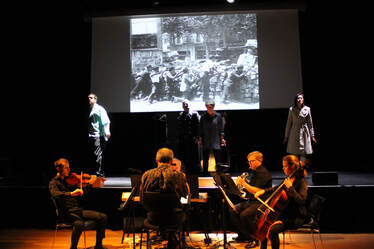|
Having never taken to cinema relays, the experience of watching opera at home has been better than I would have imagined, (albeit at the mercy of an internet connection). Think of some of the advantages: (1) No travel involved, no late-night trains home. (2) Cameras get in on the action, close up, saving hundreds on the cost of a front stalls ticket. (3) No irritating audience neighbours. (4) Watch in comfort when you feel like it. (5) Subtitles rather than surtitles. (6) Rewind as required. (7) Truly international viewing. (8) Excellent sound, voices clearly audible. (9) Participate in watch party chats. Of course, the thrill of experiencing a live-performance in-house is lacking, but so are the chances of contracting the virus. Watching great opera while also staying alive: a no-brainer!
How will new viewing habits affect the future of opera? Since it receives taxpayers' support, It seems only right that the Royal Opera, for example, makes available its output for all to see, regardless of geography . So will there be a two-tier audience? Theatre attendees paying lots to be there while those at home watch for free? How about an annual subscription for the UK's output of opera made available on a special channel? Or does this new situation herald the demise of grand opera houses altogether?
0 Comments
Leave a Reply. |
Edward LambertComposer and musician Categories
All
Archives
July 2024
|
|
Scores available by means of a Performance Restricted license from IMSLP
The Music Troupe
|
Contact Us |
 RSS Feed
RSS Feed
